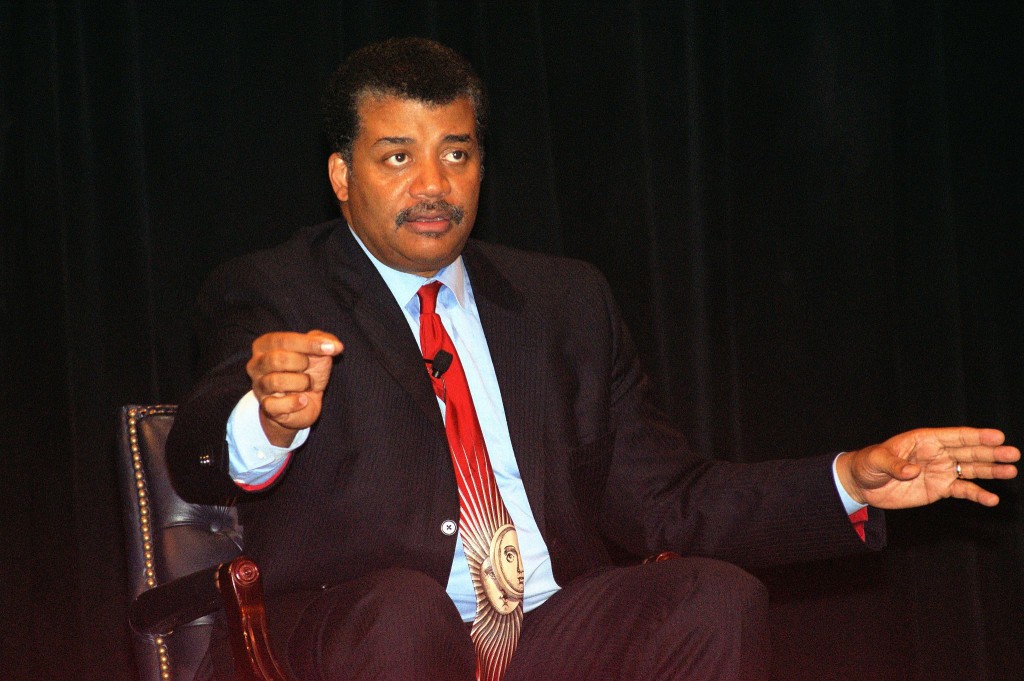 When discussions of identification and labels note the complexity of labels and complicate the “strong cultural associations” that such labels often convey, I feel like cheering. So I was excited when my brother sent me a link to a nuanced NPR blogpost, “What if Atheists Were Defined by Their Actions?” by Tania Lombrozo. A professor of psychology, Lombrozo writes about Neil deGrasse Tyson’s rejection of the label atheist because he does not conform to the image and actions that people, including atheists and theists, associate with that label. Tyson discussed his views in an interview for the Rationally Speaking podcast. At 5:27, for example, Tyson succinctly highlights the problem of cultural associations, asserting, “Labels are intellectually lazy ways of presuming that you know more about someone that you have actually learned.” Continue reading ““I Am Neil deGrasse Tyson. Call Me That””
When discussions of identification and labels note the complexity of labels and complicate the “strong cultural associations” that such labels often convey, I feel like cheering. So I was excited when my brother sent me a link to a nuanced NPR blogpost, “What if Atheists Were Defined by Their Actions?” by Tania Lombrozo. A professor of psychology, Lombrozo writes about Neil deGrasse Tyson’s rejection of the label atheist because he does not conform to the image and actions that people, including atheists and theists, associate with that label. Tyson discussed his views in an interview for the Rationally Speaking podcast. At 5:27, for example, Tyson succinctly highlights the problem of cultural associations, asserting, “Labels are intellectually lazy ways of presuming that you know more about someone that you have actually learned.” Continue reading ““I Am Neil deGrasse Tyson. Call Me That””
The Persistence of Belief

In a recent blogpost on The Immanent Frame, Richard Madsen juxtaposes two polls that suggest almost half of the population of China identifies as “convinced atheist” while 85% participate in “religious practices.” For him, or at least for his readers as he imagines them, such data requires special attention and explanation. He asks,
How, then, can we reconcile reports of widespread atheism with those of widespread religious practice? Continue reading “The Persistence of Belief”
Making Religion Central
A book in the local library, Chris Stedman’s 2012 memoir Faitheist: How an Atheist Found Common Ground with the Religious (Boston: Beacon Press), attracted my interest recently. In this book, Stedman, who self-identifies as an atheist, promotes pluralism and interfaith dialogue among the religious and non-religious. He strives to encourage people of different commitments to respect and listen to each other, as well as challenge each other, to counter the belligerent approach to religious people of those dubbed the New Atheists. He asserts that reconciliation can legitimize the status of the non-religious within society in a way that belligerence towards the religious never can. Continue reading “Making Religion Central”
Why is a Praying Atheist Newsworthy?

This week, several media outlets (Washington Post and Huffington Post) have highlighted an atheist who advocates prayer. The man has blogged that when he started a twelve step program he began praying regularly to a being he created (without believing in the existence of a deity), which changed his life for the better. Last summer, I pondered a somewhat similar hypothetical scenario in which a self-identified atheist maintained a belief in god in order to illustrate, as my colleagues here at Culture on the Edge have been saying, that identifications are strategic, not intrinsic. That blog post received pushback from some friends asserting that atheists, by definition, cannot believe in god. Continue reading “Why is a Praying Atheist Newsworthy?”
